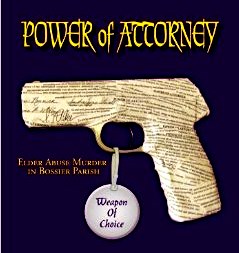
Beruschi v British Columbia 2020 BCSC 1531 discussed the status of a beneficiary of a trust to sue a third party directly for debt.
In Price Security Holdings Ltd. v Klompas 2019 BCCA 36 , the general rule is that the beneficiaries of a trust cannot directly sue a third party debtor unless three prerequisites are satisfied, or that there are special or exceptional circumstances:
- the trustee refused the request of the beneficiary to sue;
- the trustee was named as a party in the action suing the third party debtor; and
- the beneficiary exhausted his remedies against the trustee.
In Price, the plaintiff was a beneficiary of a trust that owned a commercial building and had sued the defendant tenant directly. The summary trial judge concluded that the prerequisites had been satisfied and allowed the claim.
The Court of Appeal reviewed a number of authorities, the majority of which were decisions from Alberta, before concluding that the chambers judge had erred in failing to consider whether special circumstances existed.
While the Court of Appeal in Price questioned, without deciding, whether the third of the three prerequisites is required when there are special circumstances (at para. 73), a review of the decision makes it clear that the Court of Appeal did not disagree with the first two prerequisites.
What constitutes special or exceptional circumstances will depend on circumstances of the particular case. In Price, the Court of Appeal referred to Kwinter v. Metrowest Development Ltd., 2007 ABQB 713, where the Court identified the following possible exceptions at paragraph 36:
The following possible exceptions have been identified:
- Where there is alleged to be fraud or collusion between the trustee and the third person (Halsbury’s),
- Where by reason of conflict of interest or duty it is impossible or difficult for the trustees to sue (Halsbury’s),
- Where there is a failure by the trustees in performing their duties as trustees to protect the trust estate or to protect the interests of the beneficiary in the trust estate (Hayim v. Citibank N.A. [[1987] 3 W.L.R. 83 (Eng. Prob. Ct.)])
- Where the beneficiaries are suing to recover trust property (as opposed to suing debtors of the trust) (Remmers v. Lipinski(2001), 293 A.R. 156 (Alta. C.A.), leave to appeal to S.C.C. refused, (2002), [2001] S.C.C.A. No. 502 (S.C.C.)).
The Court also added statutory exceptions, such as those in the [Business Corporations Act] allowing a beneficial owner of securities of a corporation to bring certain actions.
In addition to questioning whether it is necessary for a beneficiary to exhaust all remedies against the trustee as a prerequisite to a direct claim, the Court of Appeal in Price held that equating a failure to act with a special circumstance would have the effect of giving standing to any beneficiary where the trustee refused to act, which would then eliminate the need for special circumstances: Price at para. 69.




